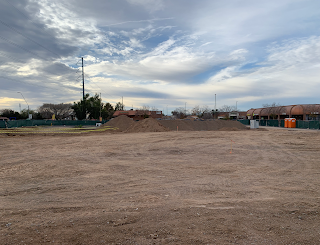Helping people who have been told that everything they were told is a lie
As a history adventurer, there have been a lot of things that I've learned that have surprised the heck out of me. And to me, that's what makes it so fun - the surprises, and learning new stuff. And of course I love to share what I've learned, especially if it's something that is completely different from what I had been thinking all along.
My favorite example is the story of how water was brought into Los Angeles with the aqueduct designed by William Mulholland. Like most people, I had seen the movie "Chinatown", which told the story in a fictionalized way, set in 1937, and it was only later that I learned that it had been actually built in 1913. Whoa!
I love to share what I'm learning, and since I'm an old advertising guy, I know that writing a dull headline like: "Some information about the Los Angeles Aqueduct" isn't going to generate much interest. Even I wouldn't read an article that sounded that dull! But also as an old advertising guy I would never write something like: "Everything you've been told about the Los Angeles Aqueduct is a lie!" It's a matter of ethics, and in spite of the bad reputation of advertising people, there really is such a thing as ethical advertising. Reputable advertising people simply don't do unethical stuff. On the internet, that's called being a "white hat", and not using the nasty tricks that make people want to click on the bait. And as an web designer, I learned about them all, mostly so I could avoid them. And it just makes me sad.
My heart goes out to people who are treated so badly. The thought that an article would make people feel that "everything they were told is a lie" is just horrific in my mind. It's an assumption that these people are stupid, and ignorant, which they aren't - they're just trusting. Some of the very nicest people I've ever met in a long life have been trusting, and caring, and emotional people. And I worry about them, as they tend to be exactly the type of targets that scammers look for.
When I started teaching graphic design, at the Art Institute of Phoenix and later at Glendale Community College, I was dismayed by the number of people who were willing to trust me just because I had a little grey at the temples, a briefcase, and a name tag that said "faculty". They were the ones who would line up expert opinions, and just become even more confused. I didn't want them to follow authority, or to trust me, on the subject of a particular type of software - I wanted them to find out on their own, to make their own decision. A good teacher shows you where to look, not what to see.
Please stay with me here, and we'll look at stuff, past, present, and future!
If you like pictures of old-time Phoenix, please become a member of History Adventuring on Patreon. I share a LOT of cool old photos there, copyright-free, with no advertising. Your support makes it happen! Thank you!




Comments
Post a Comment